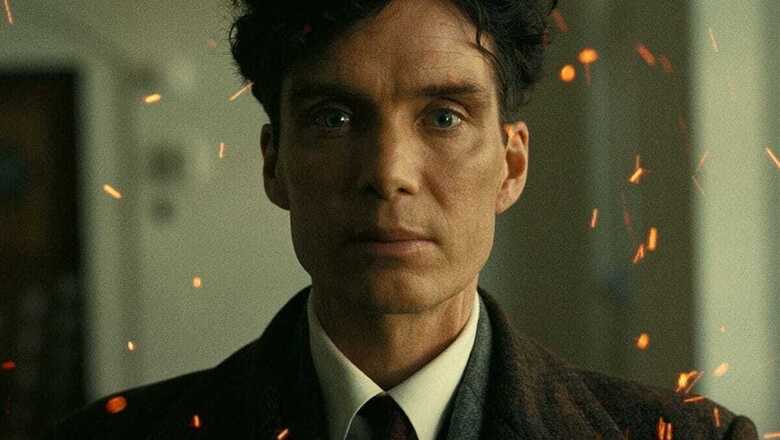
views
All of history’s events have perpetually been shrouded in grey. The 20th century saw multiple hues of the uncertain colour, cloaking mankind in our choices and our actions; it is our reasons that remain habitually unrevealed.
When the atomic bomb was detonated in Hiroshima and Nagasaki on August 6 and 9, 1945, respectively, the blast rippled in all directions, creating a thunder that would reverberate for decades to come. While the bomb instantaneously devastated Japan, and spearheaded the cause of their surrender, every country in the world was shadowed by this fatal invention, resulting in a race the world struggles to keep up with.
Oppenheimer, an epic biographical thriller, chronicles the career and choices of J Robert Oppenheimer, a Jewish-American physicist, and is directed by Christopher Nolan, who is renowned for films like Dunkirk and Inception. The nucleus of the film is largely Oppenheimer’s studies, and his orchestration of the Manhattan Project — the research project that developed the first nuclear weapons as we know them.
The film elucidates on Oppenheimer’s reputation as a venerable scientist, and his eventual recidivation in 1954, when he was looked into. The movie has received an 8.6 out of 10 rating on IMDb and scored 93% on Rotten Tomatoes, two of the upper echelons of critics of the cinema.
Oppenheimer, played by Cillian Murphy, is a scientist who seems to be constantly traversing his own mind, pursued by the foundations of the universe that beckon him, and his visions of what harnessing that power could be. He is predominantly an anxious person, almost held captive by his ingenuity, but in contrast, unperceptive to the material world around him, unsuspecting of the consequences his actions have on others.
Emily Blunt and Florence Pugh play parallel and cogent roles, characters who contribute largely to Oppenheimer’s reasons for doing what he does. Moreover, we see his guilt for the bombings play out larger than life, and his own internal contradictions and suffering for existing as a linchpin in the American government’s tapestry of planning.
The movie travels through a time where society is primarily dissolving between right and wrong, and the horror of fighting a second world war.
Christopher Nolan artfully directs the film partly in black and white and partly in colour – the significance of this is that the scenes in colour are Oppenheimer’s subjective perspectives, whilst the black and white depicts the world as it is objectively happening, years after Oppenheimer’s inquisition.
This brings in Lewis Strauss, another compelling character that tells the story as unheard before. The structure of the movie, with long, detailed scenes, arrests audience attention. However, the movie’s length of just over three hours may seem sedate to few who are not riveted by biographic thrillers.
Nolan manoeuvres cinematic devices by re-enacting the explosions with little to no computer-generated imagery. The cuts between scenes are sharp and easily differentiate between storylines involving communism and familial loyalties. It also deals with more delicate topics like depression, but masterfully rendered.
Watchers will be enveloped into the world of the atomic bomb, and shaken by the cinematic effects that Nolan plays out. Of course, a movie as historically and emotionally intense as Oppenheimer requires a serious and invested audience that is willing to venture into this universe and experience the metaphysical as Oppenheimer once did.
The cleverly orchestrated dichotomy of emotion and science is practically a religion dictated by every actor in this movie, delineating equal importance for both, for this shattering event that toppled the world. I watched the movie twice myself, which speaks to how much it means for those interested in this particular sect of history.
Oppenheimer is an indelible portrait of the watcher, and can indeed be considered Christopher Nolan’s magnum opus.
Aanya Thakur is a 14-year-old, Class 9 student of Dhirubhai Ambani International School. She is a voracious reader of varied genres and has a penchant for writing.



















Comments
0 comment